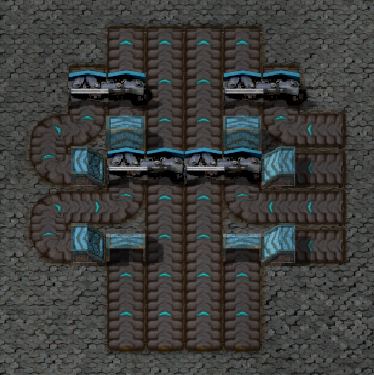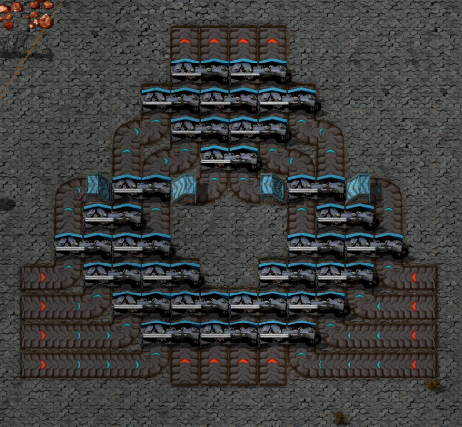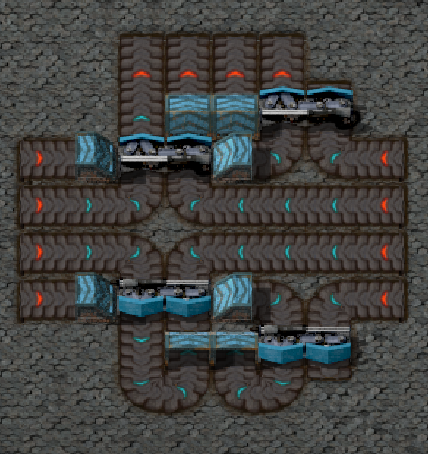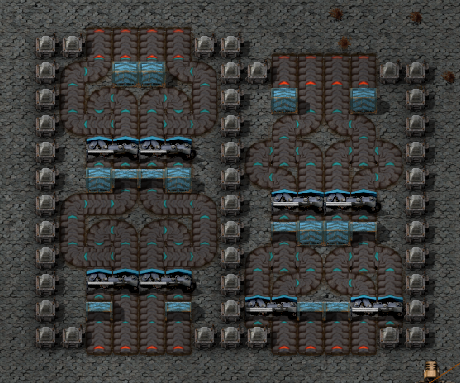I haven't been able to come up with anything smaller than this (8x6)- does anyone here know how to improve it?
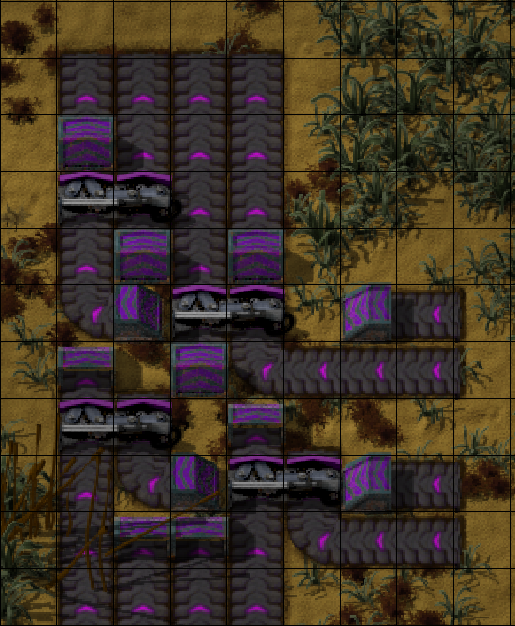
T

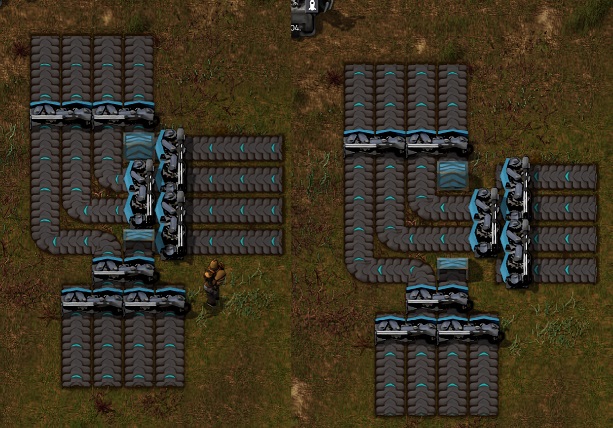

That design acts as a bottleneck, since it only has 2 belt input capacity on each of the two sides.Mehve wrote:I guess it depends on your definition of "merge". Based on your design, I'm guessing you're not worried about keeping the paths distinct from each other.
I used a 8:4 balancer design and turned half the inputs sideways to make this. Fits in a 7x6 plot of space neatly, or, if you don't mind a little stray side insertion, you can squish it further into a 7x5 plot of land.
Code: Select all
║║║║
║║╨/\
║/\╨╚═
║╨╚═══
║ ╥
/\/\
║║╨╚══
║╚╡╥╞═
║╥╥║
║║║║

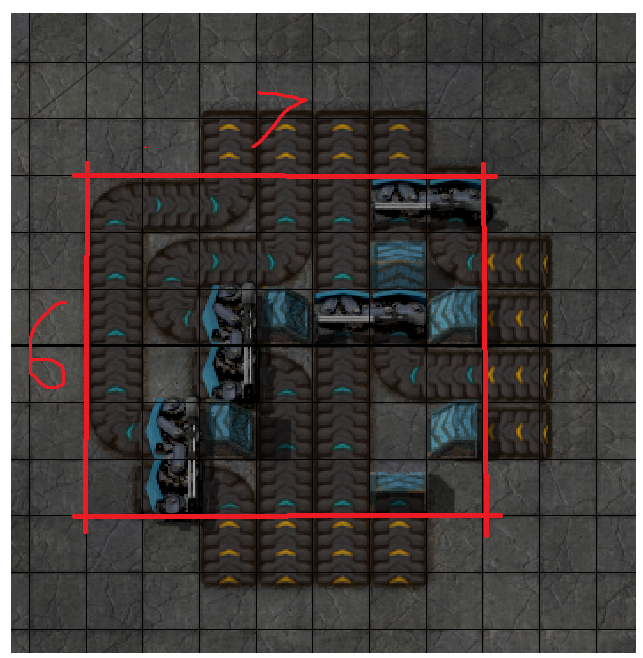

Very clever.PyroFire wrote:
Nailed it
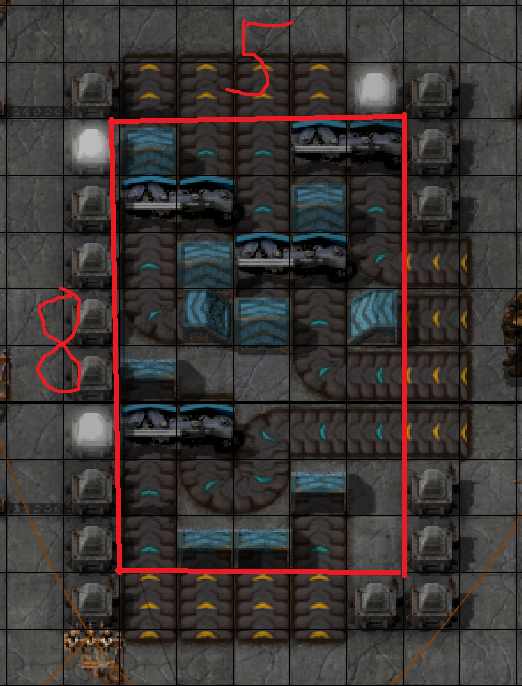
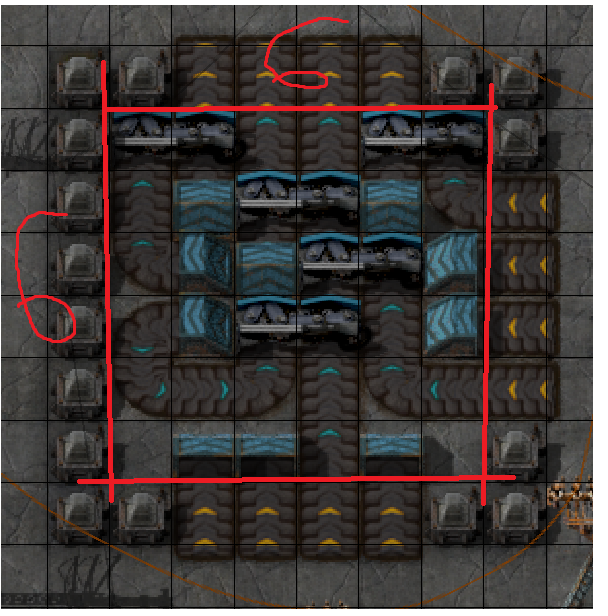
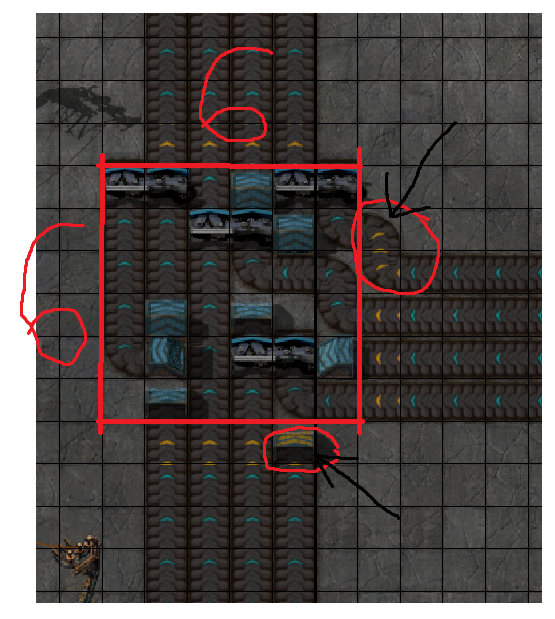

Screenshot or it's not true kthnxbaiTruePikachu wrote:@PyroFire:
For the 6x6, do you have an explanation for your assertion? I can state that the minimum practical width is 5 because a splitter on the edge of the bus would either need to go inwards (requiring extra tunneling stuff for the blocked belt), or outwards (creating the 5 width).

4x8 is not going to be possible because of the requirement that each belt needs to be merged:PyroFire wrote:Screenshot or it's not true kthnxbaiTruePikachu wrote:@PyroFire:
For the 6x6, do you have an explanation for your assertion? I can state that the minimum practical width is 5 because a splitter on the edge of the bus would either need to go inwards (requiring extra tunneling stuff for the blocked belt), or outwards (creating the 5 width).
Code: Select all
+║║║║+
1|║╨╨║|
2|/\/\|
3|║?║╨|
4|║ ╚══
5|╨╥╥ |<-
6|/\/\|<-
7|? |<-
8|╥ ╥|
+║║║║+

I really like this design because it should easily fit anywhere where two lanes are otherwise reserved for underground belt crossing. It's a drop-in solution.MeduSalem wrote: 5x7, now that's what I could live with:
Seems like my 5x7 solution is the most compact one presented in the thread to date that still supports full throughput. 5x7 = 35 tiles, 6x6 would still be 36 tiles.
MeduSalem wrote: 5x7, now that's what I could live with:
